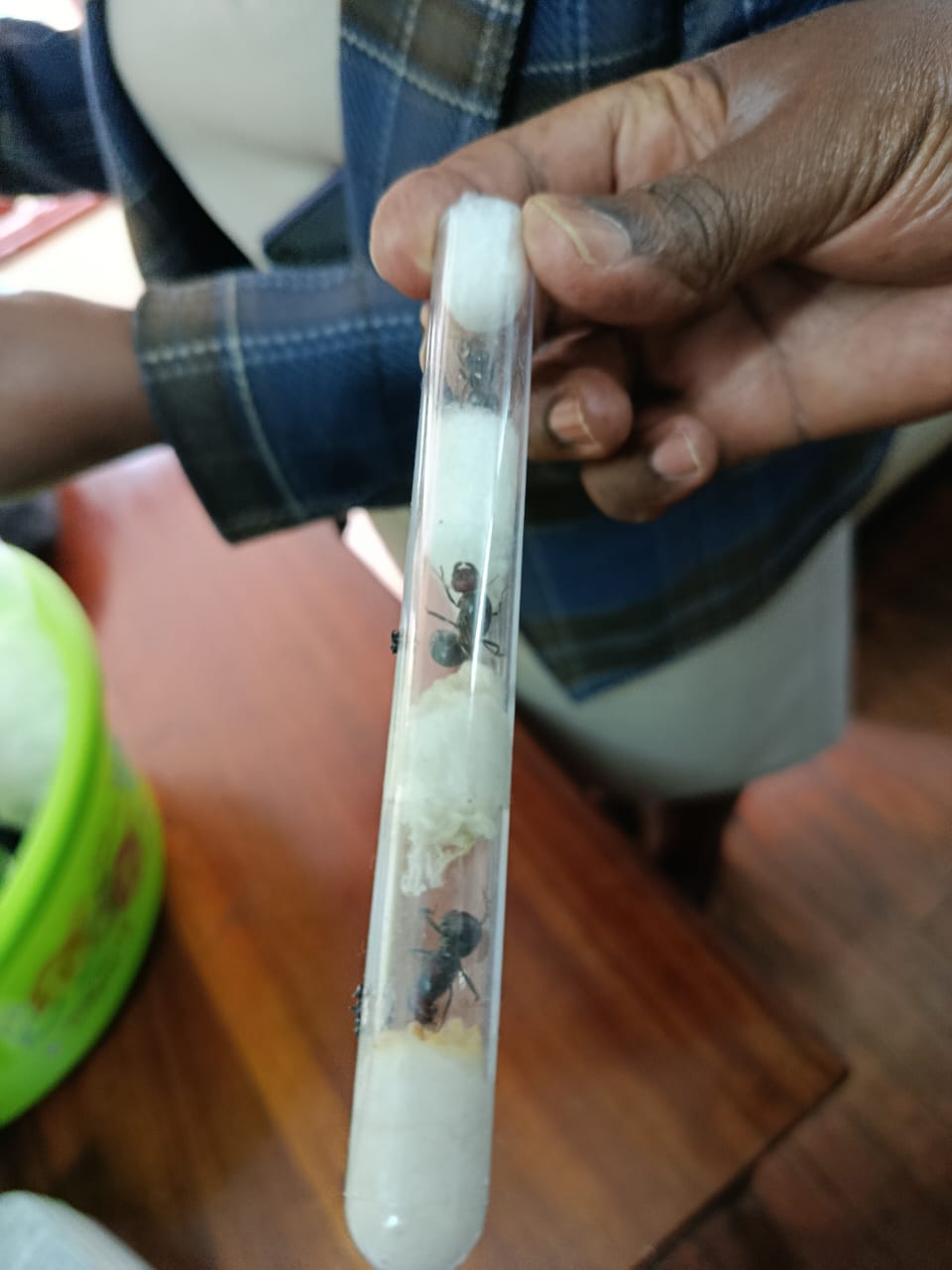Four arrested for attempted smuggling of 5,000 queen ants in Kenya

Queen ants are highly sought after for their unique behaviour and pest control capabilities in greenhouses, fetching between Sh6,000 and Sh15,000 each, depending on the species.
Four individuals, including three foreign nationals, were arrested on Monday by the Kenya Wildlife Service (KWS) in connection with an elaborate wildlife trafficking operation.
The suspects were attempting to smuggle 5,000 queen ants, worth an estimated Sh1 million, out of Kenya using modified test tubes.
More To Read
- Counties intensify pressure on national government over park revenue-sharing model
- Lewa, KWS launch vulture tracking project to boost raptor conservation
- Conservationists demand probe into relocation of orphaned giraffes from Wajir to Nanyuki
- Wajir South MP condemns relocation of orphaned giraffes to Nanyuki
- KWS moves reticulated Somali giraffes from Wajir to Nanyuki in major conservation effort
- Wildlife compensation claims hit Sh3.5 billion as thousands of Kenyans wait years for payments
Among those arrested were two Belgians, Lornoy David and Seppe Lodewijckx, who were found with 2,244 test tubes containing queen ants in a guesthouse in Naivasha, Nakuru County.
The other two suspects were Vietnamese national Duh Hung Nguyen and Kenyan Dennis Ng'ang'a, who were apprehended while attempting to smuggle 400 queen ants from Nairobi.
The suspects were charged with illegal possession and trafficking of live wildlife before Senior Principal Magistrate Njeri Thuku at the JKIA Law Courts in Nairobi.
KWS condemned the incident as a breach of both national and international regulations, describing it as "biopiracy" and a violation of Kenya’s sovereignty over its biodiversity.
The trafficking operation involved carefully concealed queen ants in test tubes and syringes, designed to keep the insects alive during transit. Cotton wool was used to sustain the ants for up to two months.
According to KWS, the smuggling scheme aimed to supply high-demand exotic pet markets in Europe and Asia.
Queen ants are highly sought after for their unique behaviour and pest control capabilities in greenhouses, fetching between Sh6,000 and Sh15,000 each, depending on the species.
KWS also highlighted the growing global demand for lesser-known species, such as the Messor cephalotes ants, which are increasingly targeted by traffickers.
This case marks a shift in wildlife trafficking trends, which have historically focused on iconic mammals. KWS warned that such activities pose a serious threat to Kenya’s ecosystem and the communities that depend on it.
"This case not only constitutes a serious wildlife crime but also biopiracy, as it involves the unlawful access and attempted export of Kenya’s genetic resources without prior informed consent or benefit-sharing," KWS stated in a public release.
The service stressed the need for stronger wildlife protection measures, including enhanced airport security, public awareness campaigns, and better monitoring of borders and conservation areas.
The prosecution is ongoing, with the suspects expected to face sentencing on Tuesday (today).
Top Stories Today
















































